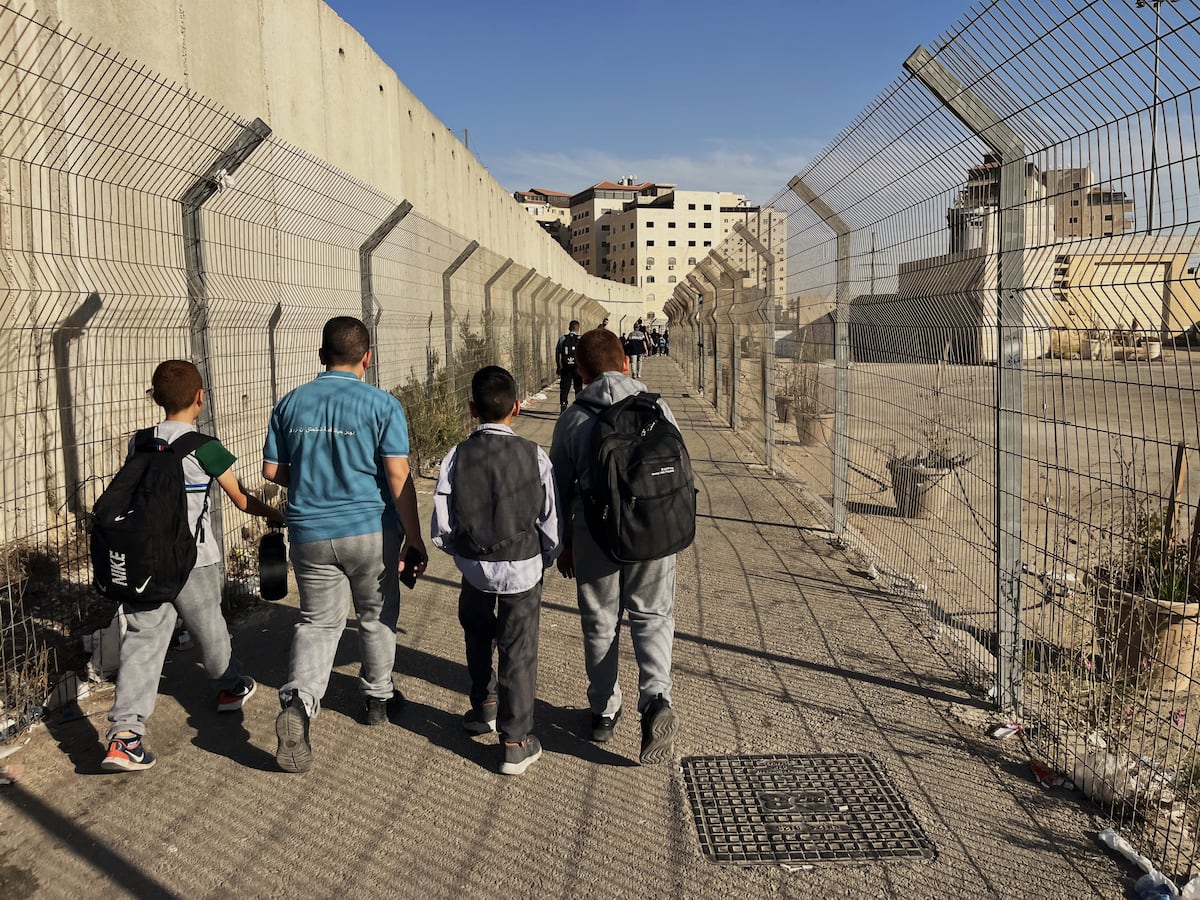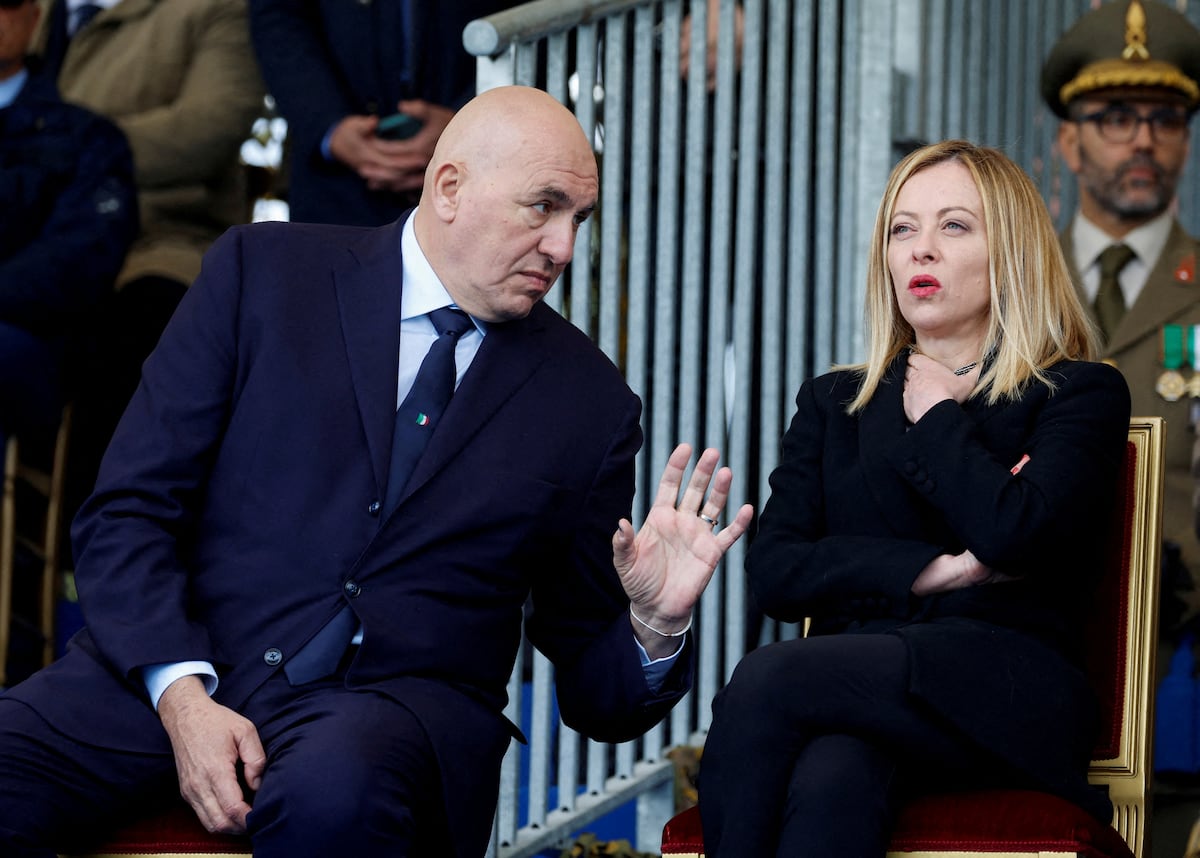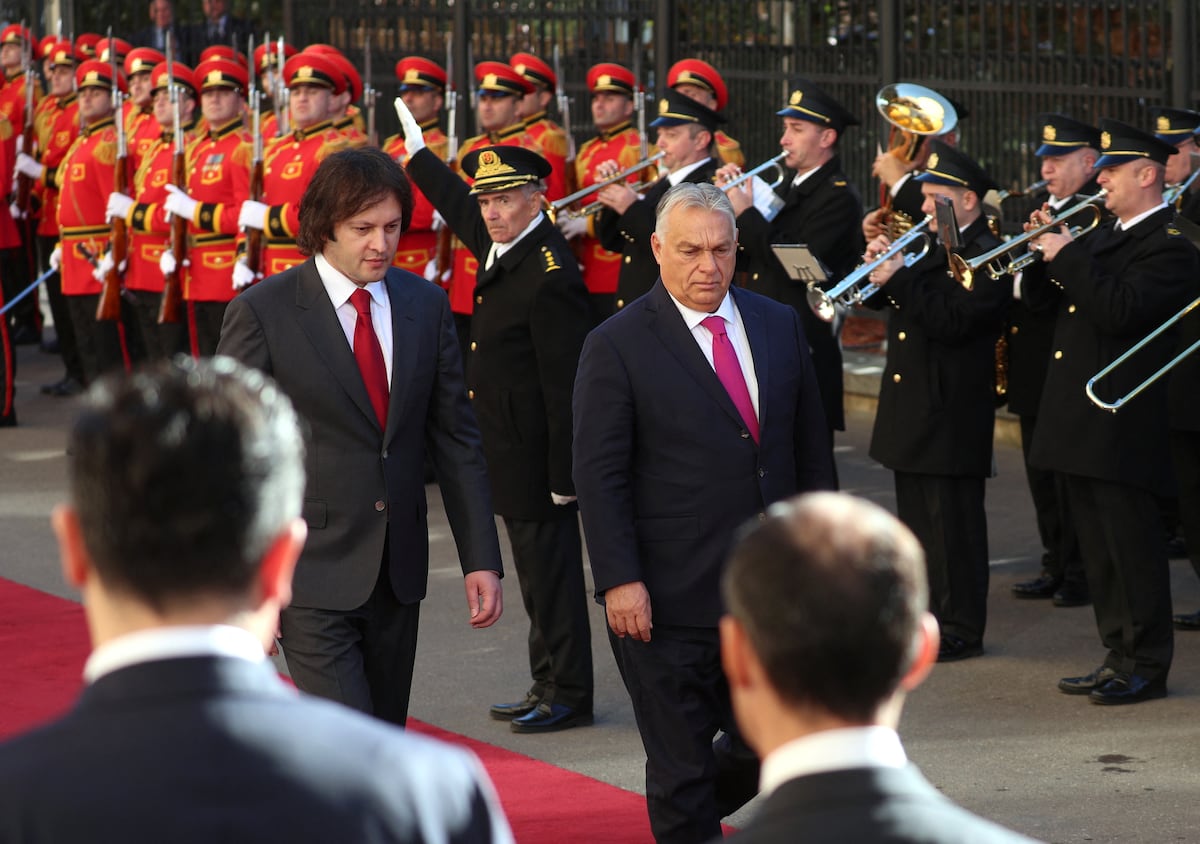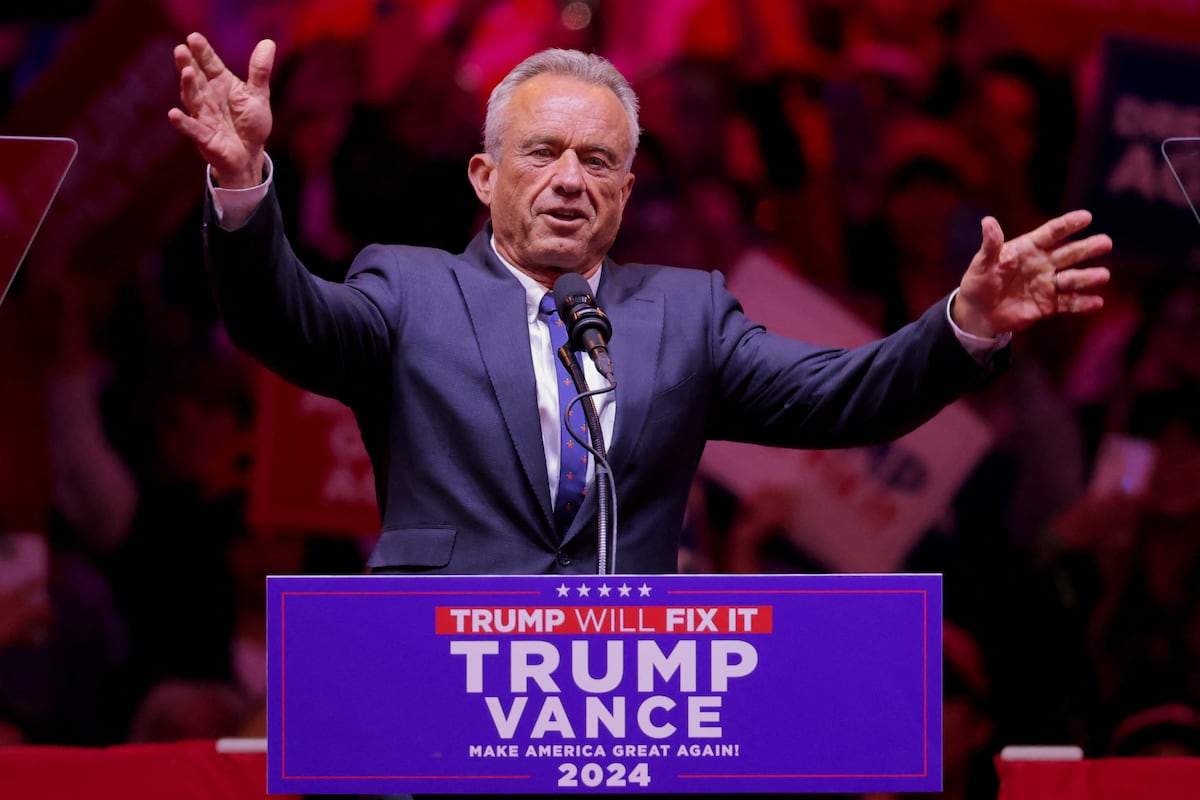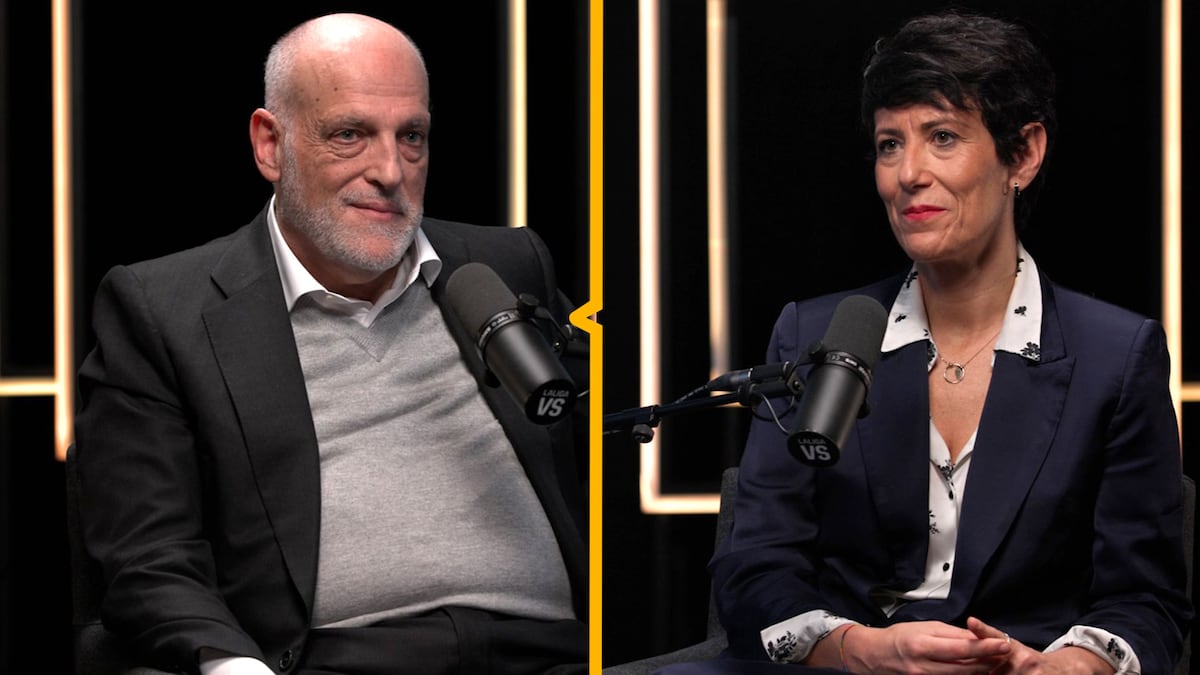Life in Palestinian refugee camps like Shuafat, in East Jerusalem, seems to be on pins and needles. An aura of provisionality and disorder prevails despite the fact that the tents were left behind many years ago, giving way to brick and half-paved streets. “It’s not easy to live here,” Malak, 15, says with a smile this Tuesday. Together with several classmates, all in uniform, she negotiates the system of concrete walls, corridors of fences and metal turnstiles that surround the field through which they return from school. This group of smiling girls seems to have come out of the pages of the report in book form with which Nathan Thrall has won the Pulitzer Prize in 2024, A day in the life of Abed Salamaa portrait of the daily tragedy under which the Palestinians of Jerusalem live.
Dozens of places like Shuafat have ended up converted throughout Palestine into ghettos where the population awaits their right to return to the towns from which they were expelled in the process of birth of Israel, which became a State in 1948. Meanwhile, they largely depend measure of the UN agency for Palestinian refugees (UNRWA). But Israel has pushed it a little further into the abyss: a prohibition order approved this Monday in Parliament weighs on it. The measure has raised criticism even among the countries closest to the Jewish State. The consequences of this particular war unleashed especially during the last year, if there is no turning back, will represent a new obstacle course for the UN and another burden on the survival of the Palestinians, the people consulted predict.
“UNRWA is irreplaceable,” says Jonathan Fowler, spokesperson for this entity in Jerusalem, emphasizing that it is the main support for the most vulnerable population in Gaza, which is suffering the greatest humanitarian crisis in its history due to the Israeli blockade. Contrary to what Prime Minister Benjamin Netanyahu announced, Fowler sees it as impossible that in the three months in which the ban must be implemented, someone will be able to design an alternative system to the mechanism that UNRWA forms inseparably together with other United Nations agencies. United. Without the refugee agency, “it is operationally impossible for the rest of the UN system to step up immediately.” That is, however, the plan planned by Israel, as explained by the Ministry of Foreign Affairs, referring to agencies such as Unicef, the World Health Organization or the World Food Programme.
Fowler affirms that the main victim of the Israeli decision, before the UN, will be the Gazans – more than 43,000 have already died – who are the main target of its activities. And even more under a contest with an uncertain ending.
Although he prefers to speak conditionally, the agency spokesperson sees important obstacles if the Israeli plan goes ahead. They depend, for example, on the Israeli port of Ashdod to unload humanitarian aid, on the Ministry of Foreign Affairs for visas and permits, on meetings with the Administration to coordinate their activities in the West Bank, Gaza and East Jerusalem or on something as everyday as being allowed to pass. by military controls. The list is long. “The no-contact policy could be extremely severe,” he warns in reference to the denial, due to the new law approved, of relations between the Israeli Administration and the UN agency.
The United States believes that Israel is not facing the “catastrophic humanitarian crisis” generated in Gaza nor are its words accompanied by actions and “this must change immediately,” claims the US representative to the United Nations, Linda Thomas-Greenfield. On October 13, Washington already sent a letter to Israel warning that if it did not allow aid to enter the Palestinian enclave, it could restrict military support. He gave him a month’s deadline.
“Lack of viable alternative”
The head of UNRWA, Philippe Lazzarini, believes that aid to the Palestinians has been put at risk, whose suffering will increase due to the “lack of a viable alternative for the agency” due to the new Israeli legislation. In the midst of the controversy, Norway is going to propose to the General Assembly that it request the opinion of the International Court of Justice to find out whether Israel has violated international law with this new legislation. The Israeli ambassador to the UN, Danny Danon, has insisted: UNRWA is “a terrorist initiative camouflaged as a humanitarian agency initiative.”
A direct consequence of what was decided by the majority of the parliamentarians, both from the government coalition and the opposition, could be that tens of thousands of Palestinians will be left without their most basic needs, Aviv Tatarski maintains by telephone, by Ir Amin, an Israeli NGO that denounces human rights abuses under the occupation. “Israel will not do it and will prevent UNRWA from doing it,” he adds.
For Israel, Tatarski adds, this UN agency symbolizes aid to the Palestinians and the right of return of refugees and the new legislation means, “in the midst of the atrocities in Gaza”, that Israel seeks “a new situation.” Covering almost on the fly the experience of more than seven decades of the Palestinian refugee agency with private, paramilitary or security companies is not seen as something within reach, says a source familiar with UNRWA’s work who prefers not to. be cited.
Among street vendors of fruit and vegetables and children on bicycles, dentist Ahmed Abed, 40 years old and born in Shuafat, is clear that the new Israeli measure of pressure on the UN “is not good news.” His family is originally from Modiin, today an Israeli city between Jerusalem and Tel Aviv. While he narrates the events of the last decades, he is surrounded by some neighbors who address him as “doctor.” In 2023 there were about 16,400 refugees registered by the UN in this camp, a population much smaller than the one that actually lives there. Real estate, fiscal and bureaucratic pressure, together with Judaization policies, lead many Palestinians in Jerusalem to seek accommodation in cheaper areas such as Shuafat, where, at the same time, services and living standards are much more precarious.
Fowler also refers to possible consequences of the new Israeli regulations “in a region of high political tension, social tension, economic difficulties”, where UNRWA “has been a relative guarantor of stability.” “If they destroy us and our services, what will happen to an enervated and neglected population? It is not the ideal recipe for social peace. And the consequences of that in a region like this can have a chain effect,” he predicts from an office at the UNRWA headquarters in Jerusalem, attacked several times by Israeli radicals and located on land in occupied Jerusalem where the City Council The city intends to build a development of more than 1,000 homes for Jewish settlers. Everything, the official recalls, is part of a broad “campaign” that has been trying for months to put an end to the UN agency, which has lost 220 of its 13,000 employees in Gaza in the year of war.
He believes that accusing UNRWA of “terrorism” and being an ally of Hamas is also part of that campaign. So far, the agency has fired nine workers out of 13,000 after being pointed out by the Jewish State, from which the UN demands more evidence. “I’m not minimizing the nature of the allegations, but those nine represent 0.04% or less. And yet, some say, that means everyone,” Fowler defends.
UNRWA, which has 30,000 employees, operates under a mandate from the UN General Assembly that has been renewed every three years since 1949 and provides education, health and social services to the more than two million Palestinian refugees in Gaza, the West Bank. and East Jerusalem, as well as in Jordan (two million), Syria (530,000) and Lebanon (460,000). Unilaterally, Fowler details, Israel is trying to impose a change on something decided in the Assembly and, furthermore, on a territory it illegally occupies.
“I love Hamas,” a seven or eight-year-old boy provocatively shouts in Shuafat. He chases the reporter along with other friends shouting yehudi (Jew), which catches the attention of a shopkeeper who comes out to verify that the foreigner is actually a journalist and not an infiltrator. Upon leaving the refugee camp, a brief interrogation awaits the informant at the metal detector by the border police. Yes, border agents inside the city of Jerusalem, at the foot of the wall that separates Palestinians from Israelis.

